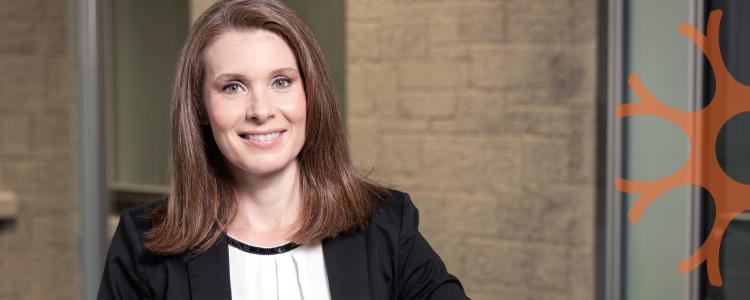

Julie Scorah, PhD, is a licensed neuropsychologist specializing in neurodevelopmental conditions, including autism, Attention Deficit Hyperactivity Disorder (ADHD), and Fetal Alcohol Spectrum Disorder (FASD).
She is a research member of ACAR since 2019.
What sparked your interest in neurodevelopmental disorders?
I have always been interested in neurodevelopment and how biological and environmental factors affect brain function. Through various professional experiences, I started working more closely with children with neurodevelopmental conditions, particularly autism, and decided that this was where I wanted to focus my career.
I really felt at home working with neurodiverse individuals and their families.
I also saw first-hand how many of them were lacking appropriate services and supports and how few professionals specialized in this area. I felt that I could have a positive impact if I focused my efforts within this community.
What drives your work?
I am driven by the desire to help people reach their potential. I see so much promise in my patients and I learned a long time ago never to underestimate anyone, especially if they receive the right kind of support at the right times.
I strongly believe in providing quality and personalized care that meets the unique needs of patients and their families.
We want to stay away from the old "one size fits all" process and continue to grow a network of specialized clinicians that are accessible to our patients for all of their various needs.
Through my work, I hope to help fill some of the gaps in clinical care for autistic individuals and to change the way that autism services are delivered. We start by finding out what their needs are and going from there to decide how best to support them. This is a key focus of our navigation service, where the entire goal is to respond to families’ needs and connect them with information or resources that could help them.
Your work is integrated with research. How does this help improve the lives of autistic individuals and families?
Much of the work that has been done in the field of autism research has focused on characterizing the symptoms or impairments that exist in this condition and understanding how these develop.
While this has been important, I think autism research should also focus on better characterizing the strengths and talents that autistic people have and better understanding their ways of thinking and viewing the world. This is essential if we want to figure out how to truly help and support people in reaching their potential.
Our work helps to advance research and inform our patients’ clinical care in a personalized way.
Above all, my work focuses on trying to better understand strengths as well as weaknesses, and how to adapt and work with each individual's profile; tailoring their care to their skills and needs and what will work for them and their families.
Biography
Julie Scorah, PhD, is a licensed neuropsychologist specializing in neurodevelopmental conditions, including autism, ADHD, and Fetal Alcohol Spectrum Disorder. She holds a master and doctorate degree from the University of Waterloo, Ontario.
Since joining McGill University in 2019 as an Assistant Professor (Professional) in the Department of Neurology and Neurosurgery of the Faculty of Medicine and Health Sciences, Scorah has been actively involved in advancing neurodevelopmental research and care.
Currently a research member of the Transforming Autism Care Consortium (TACC), Scorah leads several initiatives, including the Neurodevelopment Learning Community. This pilot initiative provides learning and training opportunities for professionals and non-specialists worldwide. She is also responsible for introducing ECHO-Autism to Quebec. As Director of the ECHO-Autism hub at the MUHC, Julie aims to provide strategic direction and oversight to standardize best practices and increase knowledge about neurodevelopmental conditions among healthcare providers. Additionally, she serves as a co-investigator for the Quebec 1,000 (Q1K) Families initiative, fostering collaboration across six institutions to make groundbreaking discoveries in autism research.
Her research interests focus on identifying and addressing barriers to healthcare for neurodivergent individuals. She collaborates on projects within the network that address healthcare access for minority language speakers, develop clinical teaching models to increase clinical capacity, and include under-represented groups in research.
Scorah is a research member of the Azrieli Centre for Autism Research (ACAR), where she previously served as Associate Director of the ACAR Clinic from 2019 to 2023.
She has extensive experience in assessing and diagnosing neurodevelopmental conditions in tertiary centres, including at the McMaster Children’s Hospital, the Alberta Children’s Hospital, the Montreal Children’s Hospital, and The Neuro (Montreal Neurological Institute-Hospital). Her expertise also extends to leading multidisciplinary teams in home, school, and centre-based interventions for autism.
Previously, Scorah held the position of Adjunct Professor in the Department of Psychology at the University of Calgary from 2008 to 2011.
With a comprehensive background in academia, clinical practice, and collaborative research, Dr. Julie Scorah continues to make significant contributions to the field of neuropsychology and neurodevelopmental research.
Research Area(s)
Neurodevelopmental Conditions
Contact
Email: julie.scorah [at] muhc.mcgill.ca





